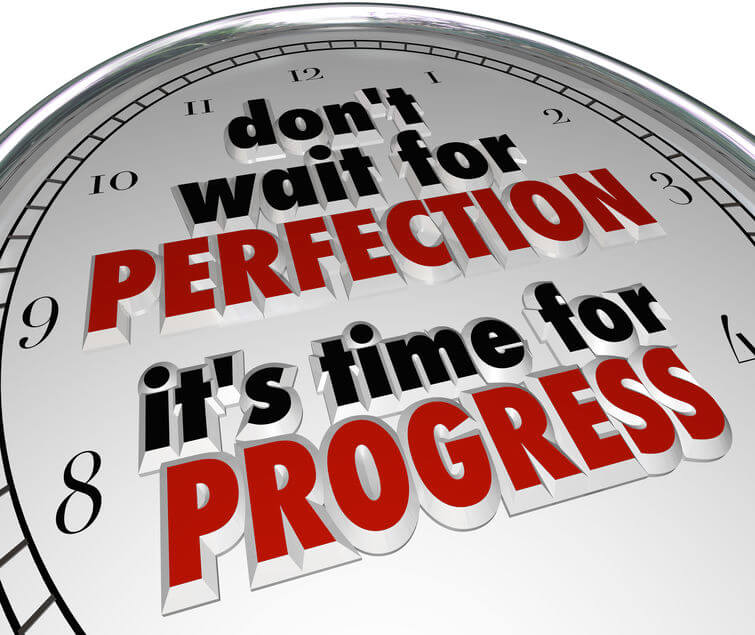We’re all subjected to different kinds of stress on a daily basis. Some stress is actually helpful, but if you’re constantly worrying about things or feeling overwhelmed, it can seriously affect your happiness, health, and well-being. One estimate claims that stress-related illness costs the US economy $300 billion each year.1 So, what is the difference between good stress and bad stress? And what techniques are available when life becomes too stressful?
Stress As A Biological Necessity
Our bodies evolved to have strong responses to stressors, and with good reason. In times of danger, an animal’s life might depend on moving immediately away from a threat, or on being instantly ready for conflict. This is the famous ‘fight or flight’ response, and modern humans are still driven by this same basic chemistry. A surge of stress hormones forces our bodies into wakefulness and motion, ready to respond to potential dangers. Most of us recognize the classic stress responses:
- Increased heart rate and breathing
- Tension in the body (especially shoulders, neck, and hips)
- Alertness and increased attentiveness
- A sense of anxiety about what’s going to happen next, and how to respond2
There’s also a less obvious shift: a prioritization of bodily resources toward physical response – and away from our immune and reproductive systems and digestive functions, which matter less during a crisis.3
Scientists are gaining a more complete understanding of the effects of stress on the body and have divided stress into at least two types: positive and negative.4
When Can Stress Be Positive?: Some Stressors Can Lead To Inner Strength And Motivation
 Positive stress, known as ‘eustress’, is the kind we experience when we’re facing a difficult but possible task, such as an exam, interview, or performance, or a new challenge, such as moving into a new house, having a baby, starting a new job, or retiring.5 It’s the excitement of a rollercoaster, the dance floor, a horror movie, or a rock concert.6
Positive stress, known as ‘eustress’, is the kind we experience when we’re facing a difficult but possible task, such as an exam, interview, or performance, or a new challenge, such as moving into a new house, having a baby, starting a new job, or retiring.5 It’s the excitement of a rollercoaster, the dance floor, a horror movie, or a rock concert.6
When these situations come along, stress hormones elicit a ‘fight or flight’ reaction, but the result is useful: an increase in energy and engagement which helps us become excited about this new challenge and ready to perform well.7,8 We begin to feel confident, animated, and able to accomplish the task, so much so that we can enter a phase of deep concentration and focus.9
This useful, positive stress emerges when we’re working on a challenge that is understood and has a clear ending point. During the task, the surge of hormones enables us to experience excitement more vividly than usual. In fact, we enjoy this feeling so much that businesses whose employees don’t get enough eustress experience high turnover due to boredom.10
This elevated experience does not last beyond the task itself, and the stressors leave no permanent traces. We soon return to normal as the body avoids wasting resources on a situation that has passed.
When Stress Is Detrimental To Your Health: Too Much Stress And Poor Coping Skills Can Have A Negative Effect On Health And Well-Being
 Negative stress, or distress, is very different. This emerges if the task can’t be completed because it’s too difficult or lengthy. Unable to see an end-point, the body becomes stuck in a stress cycle, insisting that we remain alert and ready for action, but with no sense of how long the state will last. When stress systems stay ‘switched on’ like this for lengthy periods, and especially if this happens often, the body becomes used to artificially elevated levels of stress hormones.
Negative stress, or distress, is very different. This emerges if the task can’t be completed because it’s too difficult or lengthy. Unable to see an end-point, the body becomes stuck in a stress cycle, insisting that we remain alert and ready for action, but with no sense of how long the state will last. When stress systems stay ‘switched on’ like this for lengthy periods, and especially if this happens often, the body becomes used to artificially elevated levels of stress hormones.
Many important life events can cause distress:
- Divorce or difficult relationship situations
- Loss and grief
- War, abuse, violence and trauma
- Insomnia (trouble sleeping)
- Legal or money problems
And many of us suffer from work-related stress:
- Being given too much responsibility
- Having to work alongside toxic people
- Facing an unreasonable deadline
- Having to commute a long way or in heavy traffic
- Being forced to endure useless meetings11
 When tackling these deeper, more complex troubles, the body spends weeks or months blindly inviting further stress, along with its implications. With no release valve and no end date, the stress continues without any control. There is no easing of the sensations, nor time for the body to return to normal.
When tackling these deeper, more complex troubles, the body spends weeks or months blindly inviting further stress, along with its implications. With no release valve and no end date, the stress continues without any control. There is no easing of the sensations, nor time for the body to return to normal.
Creating Our Own Stress
Other causes of distress come from within: our own habits. Classic worrying is a good example: Think of someone who always reaches for the negative ‘what if…?’ and believes the universe is predetermined against them. Each time they reinforce this behavioral cycle, they teach their body that it’s appropriate to be permanently on edge because failure and disaster are likely, perhaps even inevitable.
Procrastination is another stress-yielding habit.12 If ‘good stress’ relies on a task being time-limited, then procrastination destroys this possibility by effectively assigning limitless time to the task. The mind sees not a neat, organized requirement but rather a brutal and impossible demand, stretching into infinity.
Being a perfectionist can also be deeply stressful. With no obvious ‘ending’ to bring closure to the task, the body never rounds out its stress response or lowers cortisol levels, resulting in an extended stress experience. Over time, the body learns to overreact, so that the urge to protect you (by inducing a ‘fight or flee’ state) can kick in even when it’s not needed.
Habits like these can create something called episodic acute stress, which feels just like it sounds – bursts of terrifying sensations that dominate thoughts.13 Instead of being keyed-up and motivated, the body is anxious and afraid. Decision making suffers, as does cognitive performance.14 A person enduring acute stress is more likely to be pessimistic and suffer from poor mental health.15,16
If that wasn’t enough, studies link stress with depression, irritability, weight gain, mood swings, sleep problems, appetite variance, and (perhaps you’d already guessed this one) skin problems.17,18,19,20
So, What Can You Do If You’re Feeling Stressed?
Even if stress is your constant companion, there’s no need to admit defeat.
 Resolve to take small steps in stress management which reduce your stressors incrementally.21
Resolve to take small steps in stress management which reduce your stressors incrementally.21- Practice ‘acceptance’, the message of The Serenity Prayer.
- Consider Mindfulness-Based Cognitive Therapy, where you can learn to assess your own behaviors and see which ones might be worsening
your stress. - Try to remain ‘in the moment’ rather than being pulled out by a source of stress.
- Resolve to improve your communication skills at work; many issues can be resolved this way.
- Work to become better organized by using to-do lists and prioritizing carefully.
- Plan ahead and be reasonable about your workload.22
- Learn different ways to relax, and make them everyday routines.
- Try some positive self-talk.23
- Experiment with yoga and progressive muscle relaxation.
- Label your anxious thoughts and consciously separate yourself from them; set them aside.
- Focus on something compelling that isn’t a stressor (a mantra, a game, a workout).
- Exercise regularly, which produces endorphins that can help control stress levels.24
- Take a look at your diet and cut out foods that might be harming your gut biota.
- Take care to develop positive social relationships.
- Form an action plan with a guide or therapist, and stick to it.
- Try journaling about how you experience your stressors; it can bring clarity and provide a useful record.
 Laugh often.
Laugh often.- Try not to respond to stress by dulling the discomfort with alcohol, food, drugs, and other unhealthy behaviors.25
- Think about your ‘sleep hygiene’ and whether this is affecting whether you’re getting a good night’s sleep.
- Every month, learn something new and leave your comfort zone.
Learning How To Deal With Stress
By recognizing when and how we are stressed, we can respond in ways that allow our bodies to relax after stressful episodes, and avoid the dangers and costs of maintaining a constantly stressful state. And learning how to deal with negative stress can only mean good things for our health and well-being.
Learn More:
Sources:
1. https://www.stress.org/
2. https://stress.lovetoknow.com/How_Does_Stress_Affect_the_Human_Body
3. https://leopassion.com/understanding-the-difference-between-good-stress-and-bad-stress/
4. https://papers.ssrn.com/sol3/papers.cfm?abstract_id=2284310
5. https://www.healthline.com/health/eustress#eustress-examples
6. https://ohsheglows.com/2009/05/22/our-goals-eustress-and-distress/
7. https://www.e-counseling.com/stress/can-stress-be-good-for-you/
8. https://www.biorics.com/wp-content/uploads/2017/03/background-info-positive-negative-stress.pdf
9. https://www.healthline.com/health/eustress#eustress-examples
10. https://papers.ssrn.com/sol3/papers.cfm?abstract_id=2284310
11. https://www.cascadementalhealth.org/poc/view_doc.php?type=doc&id=15644&cn=117
12. https://www.biorics.com/wp-content/uploads/2017/03/background-info-positive-negative-stress.pdf
13. https://spacioustherapy.com/3-types-stress-health-hazards/
14. https://www.ncbi.nlm.nih.gov/pubmed/26304203
15. https://news.yale.edu/2012/08/12/yale-team-discovers-how-stress-and-depression-can-shrink-brain
16. http://condor.wesleyan.edu/hsinnamon/wescourses/NSB-Psyc275/NeuroAnatomical%20Stories/Stress%20and%20Cell%20Loss%20in%20Hippocampus/McEwen.pdf
17. https://leopassion.com/understanding-the-difference-between-good-stress-and-bad-stress/
18. https://www.e-counseling.com/stress/can-stress-be-good-for-you/
19. https://papers.ssrn.com/sol3/papers.cfm?abstract_id=2284310
20. https://stress.lovetoknow.com/Can_Stress_Cause_Pimples
21. https://www.mentalhealth.org.uk/a-to-z/s/stress
22. https://www.mentalhelp.net/stress/types-of-stressors-eustress-vs-distress/
23. https://health.umd.edu/fsap/managing-stress-and-anger
24. https://www.ncbi.nlm.nih.gov/pmc/articles/PMC3632802/
25. https://www.womenshealth.gov/mental-health/good-mental-health/stress-and-your-health#10

Howdy! I know this is kinda off topic however , I’d figured I’d
ask. Would you be interested in trading links
or maybe guest writing a blog post or vice-versa?
My website discusses a lot of the same subjects as yours and I
believe we could greatly benefit from each other.
If you are interested feel free to shoot me an e-mail.
I look forward to hearing from you! Excellent blog by the way!
asmr 0mniartist
I have recently started a site, the information you offer on this web site has helped me tremendously. Thank you for all of your time & work.
Thanks for your personal marvelous posting! I genuinely
enjoyed reading it, you are a great author. I will ensure that I bookmark your blog and
may come back from now on. I want to encourage you to ultimately continue your great job, have a nice evening!
asmr 0mniartist
Pretty! This has been an extremely wonderful post. Thank you for
supplying this info. 0mniartist asmr
Usually I do not read article on blogs, however I would like to say that this write-up very pressured me to try and
do it! Your writing taste has been surprised me. Thank you, very great article.
0mniartist asmr
Hey I know this is off topic but I was wondering if you knew of any widgets I could add to my
blog that automatically tweet my newest
twitter updates. I’ve been looking for a plug-in like
this for quite some time and was hoping maybe you would have some experience with something like this.
Please let me know if you run into anything. I truly enjoy reading
your blog and I look forward to your new updates. asmr 0mniartist